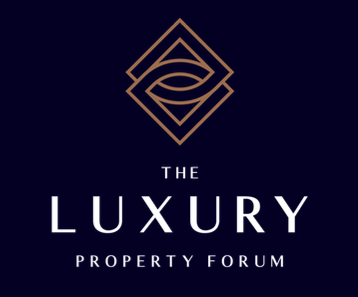11k Consulting: Inside the Mind of Chinese High-Net-Worth Individuals
LPF Member 11K Consulting and Quintessentially invited invited 13 experts across luxury property, family office, legal, design, hospitality, and professional services sectors to offer their insights on Chinese HNWIs from their industry perspective.
The trajectory of China's affluent is poised for significant growth in the coming years. Currently, there are 2.62 million high-net-worth individuals (HNWIs) in China, defined as those with investable assets exceeding RMB 10 million (approximately USD 1.5 million). In 2020, these HNWIs collectively possessed an astonishing RMB 84 trillion (around USD 12.4 trillion) in investable assets, according to PwC.
The future appears to be even brighter for Mainland China; as they are projected to witness a remarkable 49.8 percent surge in its population of ultra-rich individuals by 2027. Additionally, Hong Kong is expected to bounce back, with the number of ultra-rich residents anticipated to rise from 5,686 in 2022 to 7,280 by 2027, according to Knight Frank.
In the new landscape, it's imperative to explore the evolving priorities and preferences of China's ultra-rich. Moreover, the global investment landscape, including real estate investments, has undergone substantial changes in the wake of the pandemic. We'll delve into the shifts in investment strategies and what distinguishes the emerging Chinese HNWIs from their traditional counterparts.
Key insights from industry experts in Asia, the UK and the ME:
Chinese high-net-worth individuals (HNWIs) both in China and abroad are increasingly exploring travel options and showing a growing interest in wellness, self-care, and personal space. The rising desire for opulent living experiences provided by branded residences, inclusive of wellness amenities and lifestyle services, mirrors this evolving trend.
Among Chinese HNWIs, there is an increased interest towards sustainable investing and are actively moving towards increased diversification. This involves expanding their investment portfolios across various jurisdictions, industries, and asset classes, and on different platforms.
Property in the UK is still widely considered a safe and profitable investment for Chinese HNWIs. Possessing a share in London's prime or super-prime property market, especially in esteemed postcodes, is perceived as both a symbol of prestige and a prized 'trophy' asset.
Climate change, sustainable living, healthcare, and medical research are among the sectors that have witnessed an increased level of interest from Chinese HNWIs.
Chinese investors are actively seeking to broaden their footprint in the Middle East, capitalizing on the region's burgeoning economy and consumer market. They are also keenly exploring opportunities in infrastructure, energy, and technology within the Middle East.
Post-pandemic, quality is more important to HNW Chinese buyers than ever before. This is particularly evident in their preference for luxury property that excel in delivering superior quality interiors and finishes.
Most of the newly generated wealth is attributed to technopreneurs, typically in the younger age bracket, ranging from their late 20s to early 40s. They have generally accumulated their wealth over a relatively shorter period and tend to adopt more assertive investment strategies.
The new Chinese HNWIs frequently operate in sectors like e-commerce, fintech, and digital assets, industries at the forefront of China's economic development and transformation. They often exhibit a more global perspective compared to their traditional HNWI counterparts, displaying a robust enthusiasm for international investments and business opportunities.
Chinese HNWIs typically include both Hong Kong and Singapore in their investment strategies. Hong Kong serves as the gateway to China, while Singapore acts as the gateway to Southeast Asia.
Many Chinese HNWIs are adopting a more long-term perspective when it comes to their investments. They are considering not only their current situation but also where they want to live and work for several years ahead.
“Prime and super-prime properties in London, remains a symbol of prestige and a prized asset for Chinese HNWIs. This sentiment is rooted in the perception of London as a safe and profitable investment destination. Amidst the evolving priorities and preferences of Chinese HNWIs, the timeless appeal of London’s luxury property market underscores its status as a cornerstone of their investment portfolios, reflecting its enduring reputation for stability and wealth preservation.”
Experts include: Alexandra Buxton, Director of Agency at Quintessentially Hong Kong; Jack Bridges, Partner at Argent Design Limited; Dean Clifford, Co-founder of Great Marlborough Estates; Michael Chan, Managing Partner at Chan Neill Solicitors LLP; Naomi Heaton, Founder and CEO of The Other House, and Founder of London Central Portfolio; Penny Mosgrove, CEO of Quintessentially Estates; Christopher Murray, Managing Director and Co-Founder of Concord London; Jenny Naylor, Consultant Head of Marketing for The OWO; Silvia On, Partner at Charles Russell Speechlys; Alice Quek, Head of Private Client Services at Hawksford; Patrick Tsang, Chairman of Tsangs Group; Yuchen Xia, Managing Director of New Horizon Global.
GET IN TOUCH
39 Queens Crescent, NW5 3QD, London, UK
+44 (0)7841377018
info@11kconsulting.com

